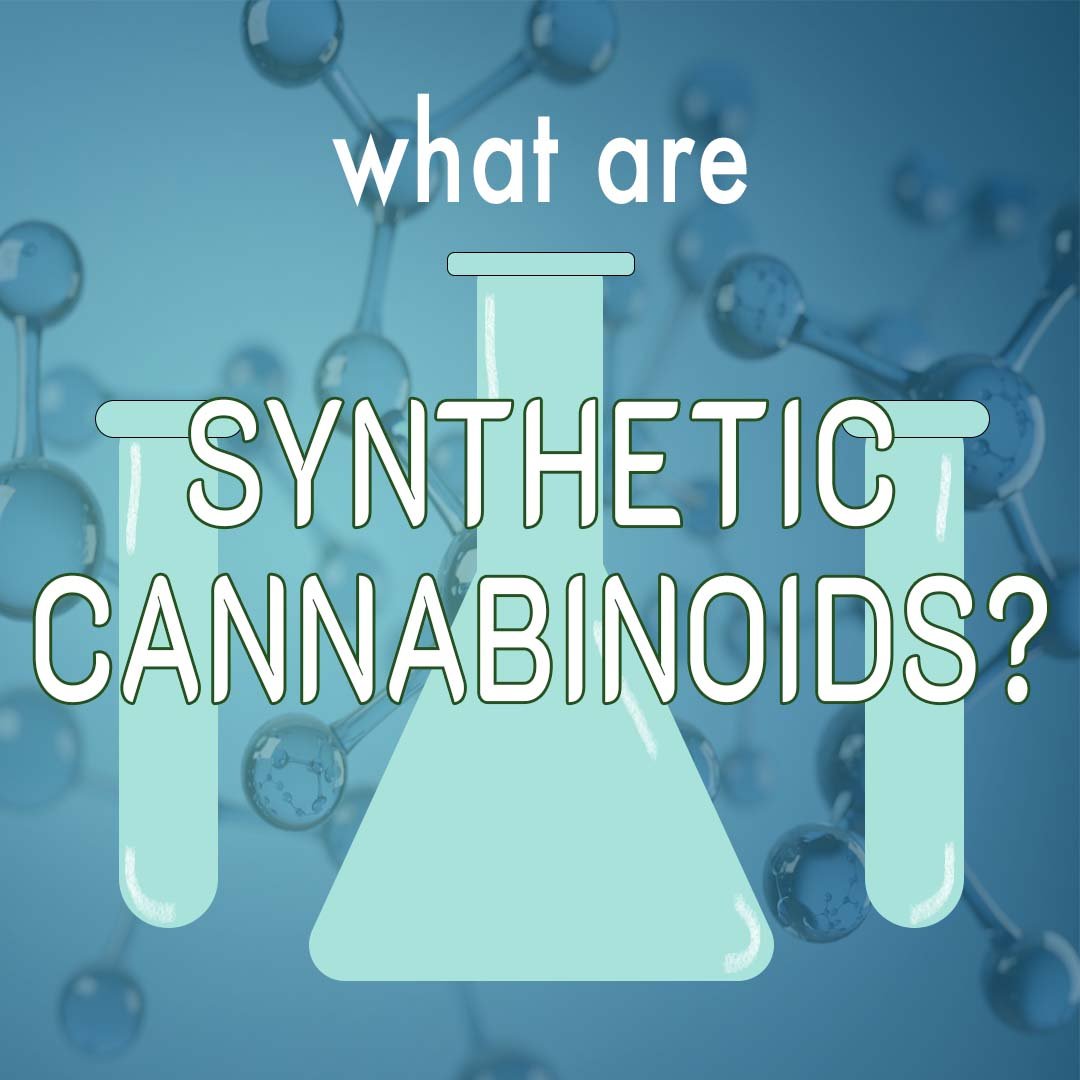What Are Synthetic Cannabinoids?
What are synthetic cannabinoids?
Synthetic cannabinoids are cannabinoids that are “created” rather than extracted.
Usually, they are created in a lab from various chemicals, then sprayed onto cannabis plants with a THC content lower than 0.3% (hemp) to still get the flavors from non-intoxicating cannabinoids, and to mimic the way we consume cannabis that contains THC. They can also be turned into a liquid substance to be put into vape cartridges.
These cannabinoid creations aren’t derived from the cannabis plant at all, but are rather a completely different chemical made in an attempt to mimic the effects of THC (which isn’t actually possible).
Synthetic cannabinoids can certainly have effects on the human body, but they aren’t the same naturally occurring and intoxicating high we’ve come to know and love from THC.
So why make them?
Synthetic cannabinoids were initially created to be used in place of cannabis-derived cannabinoids (because of their illegal status) for research on the effects of cannabinoids on the human endocannabinoid system, but eventually spread to the illicit market and began to be sold as consumable products.
States where THC has yet to be legalized are getting around the law through some pretty clever loopholes, where products with non-cannabis derived synthetic cannabinoids are being marketed as having the same effects as those that are from cannabis.
Seems kinda cool. But how are they dangerous?
To start, these cannabinoids bind to our cannabinoid receptors at a much higher rate than natural cannabinoids, and these unregulated products aren’t reliable. There is nobody out there making sure each product actually contains the advertised dosage, so many people have been sent to the hospital for accidentally taking too much.
And because they’re often marketed as being the same as THC, consumers try and consume them the same way and at a similar dose. Which is bad, as they are much, much stronger.
There is also the problem of the sometimes dangerous chemicals in the products. Because the labs in which these cannabinoids are created are unmonitored, dangerous and toxic chemicals can be used to produce these products, and unfortunately, no one will know until it’s too late.
Because they are an illegal substance, no studies have been done on synthetic cannabinoids to determine the effects on the human body. But according to the CDC, there are many overdose reports from hospitals that contain instances of consumers experiences negative effects such as:
Agitation: 1,262 cases (35%),
Rapid heartbeat: 1,035 cases (29%),
Drowsiness/lethargy: 939 cases (26%),
Vomiting: 585 cases (16%), and
Confusion: 506 cases (14%).
As well as 15 reported deaths (2).
We know it sucks to live in a state where cannabis is still illegal, but because of these reports, we are taking synthetic cannabinoids seriously, and are asking consumers to resist the urge to purchase them.
Sources:
Alcohol and Drug Foundation. What are synthetic cannabinoids? November 22, 2023.
https://adf.org.au/drug-facts/synthetic-cannabinoids/ Accessed 12/5/23.
2. Centers for Disease Control and Prevention (CDC). Poison center calls regarding synthetic cannabinoid spike by 229% over a 6 month period in 2015. August 10, 2017. National Center for Environmental Health. https://www.cdc.gov/nceh/hsb/chemicals/sc/poison_center.html. Accessed 12/5/23.
3. Wikipedia. Synthetic cannabinoids. Web article, multiple references. Accessed 12/5/23. https://en.wikipedia.org/wiki/Synthetic_cannabinoids


